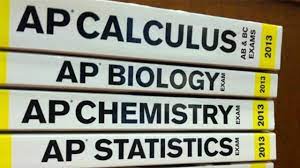Like many things in the world of college counseling, the answer to this question is, “It depends…”
One facet of the college admissions process is a student’s rigor about their high school coursework. Through the lens of the colleges, they are looking to see whether a particular student is ready to make the jump to their institution and will be successful there. To do this, the college application asks for standardized scores, a transcript, school report and usually teacher and counselor recommendations. The school report and transcript will illustrate grades and also the level of rigor of a student’s academic path.
The most selective schools will assume that a student has taken the most challenging possible course load a school offers, and the school profile will indicate things like AP (Advanced Placement) courses, Honors (or Accelerated) classes, etc
In my experience, I have worked with students who are top-track students, and in these cases, we needed to be strategic about how we distributed AP classes through their last two or three years of high school. Hint: because of the volume of reading and content, don’t double up on AP Biology and AP US History in the same year. In addition, in these cases, we want to also be mindful of a student’s classes. STEM students will likely skew more heavily toward math and sciences. By contrast, a student interested in International Relations will want to be sure they have an AP Language (French, Spanish, etc.), along with strong social sciences (AP US or World History, AP Human Geography) and possibly AP Statistics on their transcripts. I try to work with students to make sure their classes reflect and enhance their interests.
For many students I work with, the goal is to move towards appropriate challenge and rigor and this path is dictated by both interest and performance. Most students will have course sign-ups for the following year in April or May. In addition to being on track for graduation requirements, students will have several choices based on their current courses and grades. Access to Honors or Advanced (APs, etc.) classes is usually based on grades and teacher recommendations. As I said earlier, the goal is to match classes with interests and experience. READ: HOW MANY AP CLASSES TO TAKE
There is also the existing tension between whether a student should take an AP, with the possibility of a lower grade vs. a standard-track course and a higher grade. One way to approach this is mathematically. Many schools will give a grade bump to advanced (AP, Honors, etc.) classes. Students and parents can calculate what this might look like: an A in regular Chemistry vs. a B in AP Chemistry. In almost all cases, any grade below a B in any class (advanced or otherwise) should be avoided if possible. In addition, I have seen many students who initially sign up for an advanced course, only to find the material (and likely the pace) above their ability or interest and happily downshift into a regular section that is a better fit for them.
In my work with students, when we are looking at course selection and sign-ups, we take into account a student’s strengths and interests, colleges, universities and programs that are on their radar and how to best align those interests. This will be different for every student. In all cases, we want to bring the appropriate level of rigor and challenge for each student. In some cases, this will include a carefully curated slate of Honors and AP classes, one or two advanced classes with the, “Let’s see how it goes” caveat. In all cases, it is working with a student where they are and watching growth on a year-by-year basis.
ABOUT AUSTIN CURWEN
Austin Curwen brings over three decades of experience to Annapolis College Consulting. A dedicated boarding school faculty member, Austin has spent time at boarding schools in California, the UK and most recently Pennsylvania. Since 2010, Austin has managed all aspects of college counseling from being a program director, test coordinator, registrar and college counselor. He is well-versed in financial aid, athletic and arts admissions and international universities. While Austin has guided his students to some of the most selective schools in the country, what is most satisfying to him is working with and empowering students to find their best fit.
Next Up? Should you send your AP test scores to colleges?


